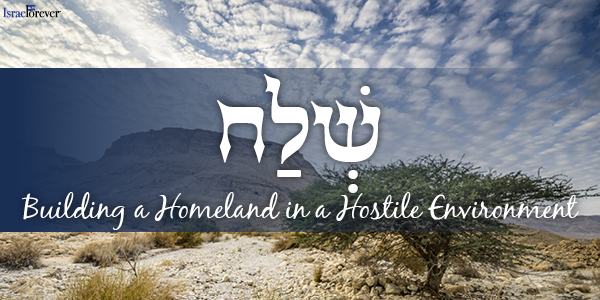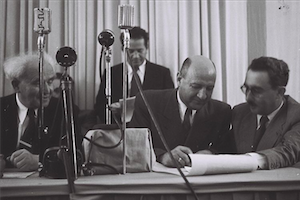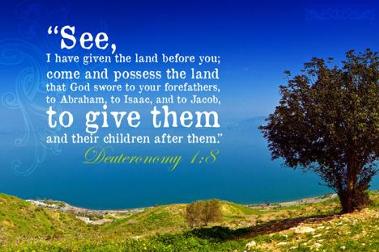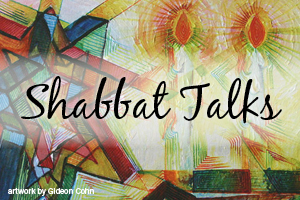Building a Homeland in a Hostile Environment
By Jacob Karlovsky
This week’s parsha, Parshat Shelach, is centered around the Israelites beginning to approach our homeland of Eretz Yisrael. They are currently in the desert, which is a sheltered environment, contrary to the land of Israel which is far more uncertain for the Israelites.

G-d commands Moses to send spies to investigate the land of Canaan, as it was then known, and Moses sends exactly twelve, one from each tribe. Only two of the spies, Hosea (Moses added a “yud” into his name, renaming him Joshua, “Yehoshua”) and Caleb, give positive reports about the land, while the other ten had worse things to say when they returned. Joshua would later succeed Moses as the leader of the Jewish people after his death.
But why would the other ten give a negative impression of the very land G-d granted to the Jewish people? They feared that it was too dangerous, as they were leaving the comfort of the desert where G-d was protecting them at all times, and they were going to encounter belligerent tribes who were willing to fight outsiders any day. They did not trust G-d’s ability to bring them into the land of Israel safely, and surely they were not prepared to be self-sufficient in the land.
The rabbis of the Talmud state that the negative spies, unlike Joshua and Caleb, were not ready to lower themselves down from the level of total Divine protection and perform mitzvot in Israel.
Similar to how ancient Israel was filled with many dangers and uncertainties, modern Israel was, and still is, a relatively unpredictable region. When the early Zionists arrived, the land was hardly arable, filled with harsh swamps and deserts and requiring tough labor to make it suitable for farming. There is also the existential threat of an attack by the surrounding peoples, and today Israelis must always remain vigilant in case of danger.
As was true for the ancient Israelites, there was always a question looming for the early Zionists: is it really worth going out of our way to create a state for ourselves in this hostile region? For both groups of people, the answer was a resounding yes.

For the ancient Israelites, going to the land of Israel symbolized freedom from slavery in Egypt, the receiving of the Torah from G-d, and the birth of a new independent Jewish people. For the Zionists, it symbolized refuge from antisemitism and the revival of a once scattered nation. Despite the labor needed to reach self-sufficiency for both groups, they would each benefit in the long run by having a land of their own.
The rest of the parsha discusses the laws of tzitzit (fringes) and challah bread, two items that are ubiquitous in modern Jewish communities even 3000 years after receiving the Torah. They are virtually everywhere in modern Israel and demonstrate how our people are alive and strong in this era when we have our own homeland. These again point to the necessity of being self-sufficient in our own land, and the sacrifices the Jewish people both then and now made in order to ensure our survival.
Parshat Shelach not only demonstrates the importance of listening to G-d and fulfilling mitzvot, but also the importance of being an independent group of people with our own homeland. It signifies how the Jewish people must not take what we have for granted but rather understand the effort put in by our ancestors to create a thriving land of our own.
FOOD FOR THOUGHT:
- How was the story of the spies a turning point in the history of the Jewish people?
- Many early Zionists saw a future for the Jews in Israel, while other Jews objected. How is this similar to the story in this parsha?
- Why is self-sufficiency such an important quality for the Jewish people both then and now?
- Jews in the Diaspora today often receive misleading information about Israel. How have the ten spies done the same, and what does this mean?

Jacob Karlovsky is from outside Phoenix, Arizona and is currently a student at the University of Pennsylvania. After first visiting Israel for his bar mitzvah in 2013, he instantly fell in love with the land and has returned several times since. In his free time he enjoys playing guitar and traveling to new places, and he also hopes to live in Israel one day.








